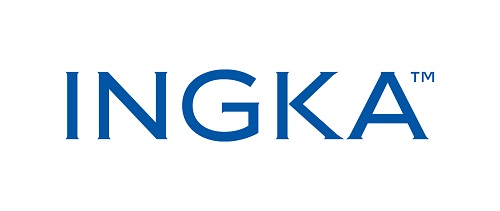IKEA to remove non-rechargeable alkaline batteries by 2021

On Wednesday, 30 September, IKEA Range & Supply announced that all non-rechargeable alkaline batteries will be removed from the global home furnishing range by October 2021. IKEA is committed to inspire and enable people to live a healthier and more sustainable life at home and by replacing alkaline with rechargeable batteries, IKEA can help customers make substantial savings on the environment as well as their wallets.
Already after 10 charges of a rechargeable NiHM battery, such as the LADDA range sold in IKEA stores, greenhouse gas emissions are lower as compared to using alkaline batteries to obtain the same amount of energy. When about 50 charges are reached, the overall environmental impacts1 of NiMH batteries is equal or even less than the impact of using alkaline batteries.2
“Consumers who need to frequently use batteries can benefit by replacing alkaline with rechargeable batteries. There are substantial savings to be made over time – on the environment as well as their wallets. IKEA globally sold about 300 million alkaline batteries last year, so we see great potential to inspire our customers to adopt new behaviours and use rechargeable batteries to their full potential“, says Emelie Knoester, Business Area Manager at IKEA Range & Supply.
In FY19, IKEA sold about 300 million alkaline batteries globally. Calculations indicate that if – hypothetically - all IKEA customers switched from ALKALISK alkaline batteries to LADDA rechargeable batteries, used them for high-drain devices and charged them just 50 times the global waste reduction would be as much as 5,000 tons on an annual basis.3 As one LADDA battery can be charged up to 500 times, the potential to reduce additional waste exists.
“We are on a journey to inspire and enable people to live healthier and more sustainable lives within the boundaries of the planet. By phasing out alkaline batteries and focusing on our range of rechargeable batteries, we are taking one step on that journey – offering customers an affordable and convenient solution to prolong the life of products and materials and reduce waste”, says Caroline Reid, Sustainability Development Manager at IKEA Range & Supply.
--------------
- Climate change, acidification, eutrophication (terrestrial, freshwater, and marine), freshwater ecotoxicity, human toxicity (cancer effects and noncancer effects), particulate matter, water resource depletion, and mineral and fossil resource depletion)
- Comparative Life cycle analysis of alkaline batteries against rechargeable NiMH batteries. Dolci et al., 2016; Mahmud, 2019; Parsons, 2007, and Menet and Gruescu, 2013.
- Calculations are based on the comparative LCA studies listed in footnote 1, extrapolated to LADDA and ALKALISK batteries, based on FY19 sales figures of LADDA and assuming all LADDA batteries are charged 50 times according to IEC 61951-2 Ed.3 (2011) standards and in high-drain devices.
For further information, journalists and media professionals can contact us at press.office@ingka.com or by calling +46 70 993 6376
Ingka Group (Ingka Holding B.V. and its controlled entities) is one of 12 different groups of companies that own and operate IKEA retail under franchise agreements with Inter IKEA Systems B.V. Ingka Group has three business areas: IKEA Retail, Ingka Investments and Ingka Centres. Ingka Group is a strategic partner in the IKEA franchise system, operating 380 IKEA stores in 30 countries. These IKEA stores had 839 million visits during FY19 and 2.6 billion visits to IKEA.com. Ingka Group operates business under the IKEA vision - to create a better everyday life for the many people by offering a wide range of well-designed, functional home furnishing products at prices so low that as many people as possible can afford it.
Tags:


